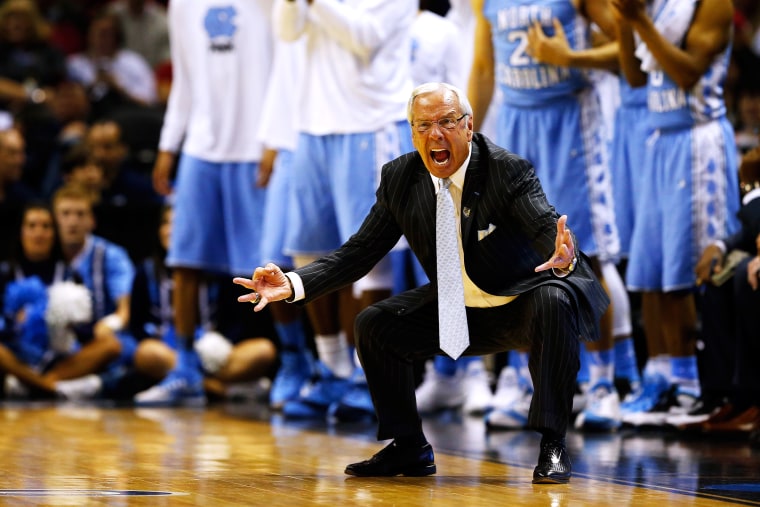An independent investigation into the academic scandal that has been swirling around the North Carolina athletics program over the course of the last three years was released on Wednesday afternoon.
RELATED: College football feels the heat: Jameis Winston punished for crude comment
And while the mammoth, 136 page document —which can be read in their entirety right here — takes a deep look into the way that the so-called “paper classes” came to be, for our sake there are two key talking points that need to be addressed:
- The courses existed from 1993-2011, and roughly 3,100 of the 97,600 undergrads at UNC-Chapel Hill during that time took those classes. Athletes made up 47.6% of those 3,100 students, according to the investigation, and student-athletes were directed to those classes by members of the Academic Support Program. “Those counselors saw these paper classes as ‘GPA boosters’ and steered players into them largely in order to help them maintain their GPAs and their eligibility under the NCAA and Chapel Hill eligibility rules,” the report said.
- The report also found no evidence that current UNC head coach Roy Williams knew about the paper class scheme and how it was being used.
This is the third report that has come out on the scandal, but the results of this report are much more damning for UNC’s athletic department. Headed up by Kenneth Wainstein, a former member of the U.S. Justice Department and currently a lawyer in Washington D.C., this latest report specifically ties the Academic Support Program for Student-Athletes to the scandal.
Those academic advisors pushed players towards the classes, the report says, because they knew the athletes were getting better grades. Here’s how the scheme worked: These “paper classes” were bogus independent study courses that were billed as lecture-style classes. The students would be graded on a term paper at the end of the semester, although the classes often lacked a professor. In those instances, according to the report, Deborah Crowder, a longtime manager of the Department of African and Afro-American Studies, was grading the papers herself.
“Between 1993 and 2011, Crowder and [Julius] Nyang’oro, [Crowder's boss, the longtime department chairmen], developed and ran a ‘shadow curriculum’ within the AFAM Department that provided students with academically flawed instruction through the offering of ‘paper classes,'” the report says. “These were classes that involved no intercaction with a faculty member, required no class attendance or course work other than a single paper, and resulted in consistently high grades that Crowder awarded without reading the papers or otherwise evaluating their true quality.”
